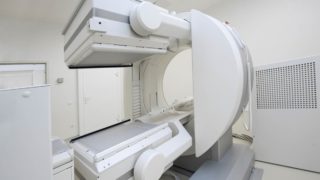
The Dorcas Cancer Foundation (TDCF) has decried the lack of dedicated pediatric radiation oncology treatment centre and fellowship training programme in Nigeria.
According to the founder, Dr. Adedayo Joseph, while radiation therapy is a necessary and highly specialised treatment modality in childhood cancers, access to pediatric radiation oncology services and specialists in Nigeria is significantly deficient.
According to the World Health Organisation’s (WHO) 2018 report, over 80 per cent of childhood cancer cases occur in low and middle-income countries (LMIC), while the childhood cancer-associated mortality is two to three times recorded in high income countries (HIC).
Joseph, who is also a Clinical Radiation Oncologist and Research Programme Director at Lagos University Teaching Hospital NSIA-LUTH Cancer Centre, said as part of moves to improve the survival rates for children living with cancer in Nigeria and Africa, the foundation is organising a Pediatric Radiation Oncology Virtual Bootcamp (#PedROC).
She said the virtual bootcamp, which will hold from Thursday, July 29 to Friday, July 30, 2021 by 11am, aims to bridge the paediatrics radiation oncology gap by providing access to continuing practice and skills update delivered by renowned pediatric radiation oncologists from all over the globe.
Joseph said the programme is the pilot of a series of continuing education in the field of pediatric radiation oncology, designed for the entire oncology workforce in Nigeria and Sub Saharan Africa, which include: radiation oncologists and therapists, physicists, radiologists and pediatric oncology nurses who will all have an opportunity to benefit from the training series.
She added that the programme is also in line with the Global Initiative for Childhood Cancer (GICC), which aims to increase survival rates of children living with cancer to at least 60 per cent by 2030 with a considerable interest in LMIC like Nigeria where survival rates are remarkably lower than HIC.
“In Nigeria, we have limited access to Pediatric Radiation Oncology, training or expertise – it is an underserved population and an issue that must be addressed if pediatric cancer survival is truly going to improve in the country.
“Radiation therapy contributes to 40 per cent of all cancer cures world-wide, it is used for curative treatment, to improve quality of life, for pain control and to treat other conditions such as bleeding, skin conditions and more,” she explained.
Also speaking, the Vice President Association of Radiation and Clinical Oncologist of Nigeria, Dr. Nwamaka Lasebikan, said accessing radiotherapy services in Nigeria has been a huge challenge, noting that only four centres are currently offering the services across the 36 states in the nation, with only two of the centers equipped with modern imaging treatment planning machines and software.
Speaking on the need for pediatric radiation oncology fellowship training programme in Nigeria, Lasebikan, who is also a consultant clinical and radiation oncologist at the University of Nigeria Teaching Hospital, said it would provide for continuous meaningful manpower development and make adequate long-term advances in the care for pediatric oncology patients.
END

Be the first to comment